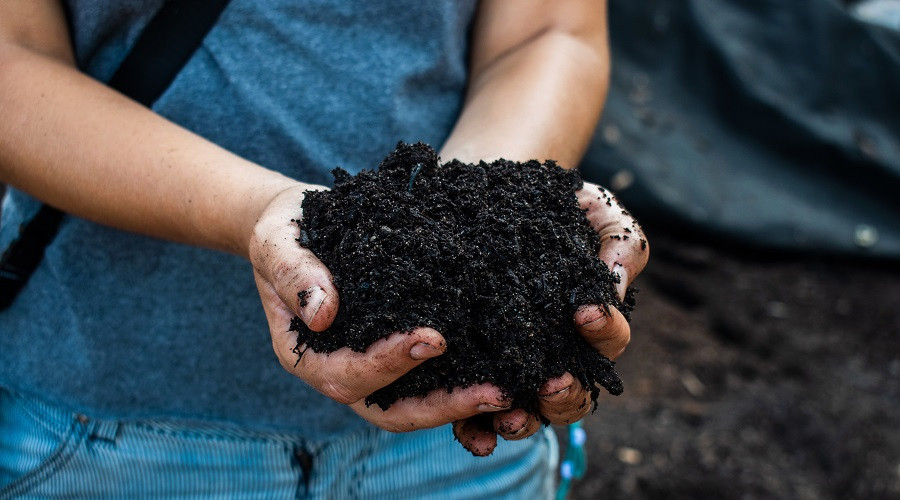HOW TO MAKE AWESOME COMPOST FOR THE GAREDEN

How to make Gold Compost that makes your Neighbors Jealous:
"While you might not think that you create enough waste to maintain a healthy compost pile, you’d be surprised to learn how much compostable matter gets thrown away on a daily basis (trust me, you’ll definitely have enough). The first thing that pops to mind with composting is kitchen scraps, this being anything from banana peels and strawberry stems to lettuce cores and carrot tops, and even leftover coffee grounds. All these scraps can be kept in a bowl or crock for convenience before being added to the actual compost bin. If you only feed your compost bin every few days, consider storing this bowl in the fridge or freezer to ensure that any bugs or smells don’t accumulate. Large chunks of food (or any material) take longer to break down than smaller pieces, so help your compost out and chop up any larger items like melon rinds, corn cobs, and even citrus & avocado peels.
"Soiled cardboard, newspaper, napkins, and other paper products are another great thing to add to your compost, think greasy pizza boxes and sandwich paper. These paper based products, though often labeled as “recyclable”, will actually contaminate the recycling process as they’re covered in food residue. So skip the garbage & recycling bin altogether and cut these up into small pieces for your compost. Just be sure that anything you add isn’t lined with a plastic coating (if it’s shiny, it’s probably plastic)".
"Other yard waste materials like grass clippings, small branches, dried twigs & leaves, and even dried up plants are perfect for composting as well. Any larger wood pieces will take longer to break down, so just chop them into small pieces before adding them. If you have clippings from weeds, invasive species, or diseased plants, it’s best to leave those out to protect the final compost fertilizer".
"Avoid adding any synthetic plastic materials or bleached paper products to your compost, like most tea bags and parchment paper infused with silicone. These won’t break down and will just be putting a strain on your compost with their leaching chemicals. Dairy, meat & bones will take a long time to break down and will likely attract unwanted pests, so they should be left out as well. But save any leftover fish skins, and just bury these right in your garden bed underneath plants, they’re an amazing fertilizer and will really help your plants grow! Many people say to avoid putting citrus or onion peels into the compost due to their high acidity, but we’ve never had a problem composting these, even with tons of peels from thriving citrus trees".
"To create a healthy compost bin, it’s a good idea to make a mental note of what you’re putting in and how much. Generally, you want to maintain a ratio of 2 parts “Brown” materials to 1 part “Green” materials. These Brown materials are high in Carbon while Green' materials are high in Nitrogen, both of which are vital for a healthy and happy compost. To get the correct ratio between brown and green compost just remember to add more Brown than you added in Green. And to remember what items are in which category, if it’s damp and green in color (or any color for the fruit & veggies), then it’s likely Green & nitrogen based, and if it’s brown and dried out, then it’s Brown & carbon based".
Any questions Reach out to Peter Atkins at (914) 234 -0161 PeterHAtkins62@gmail.com (www) PeterAtkinsandAssociatesllc.com PeterAtkindandAssociates@gmail.com. Thank you.